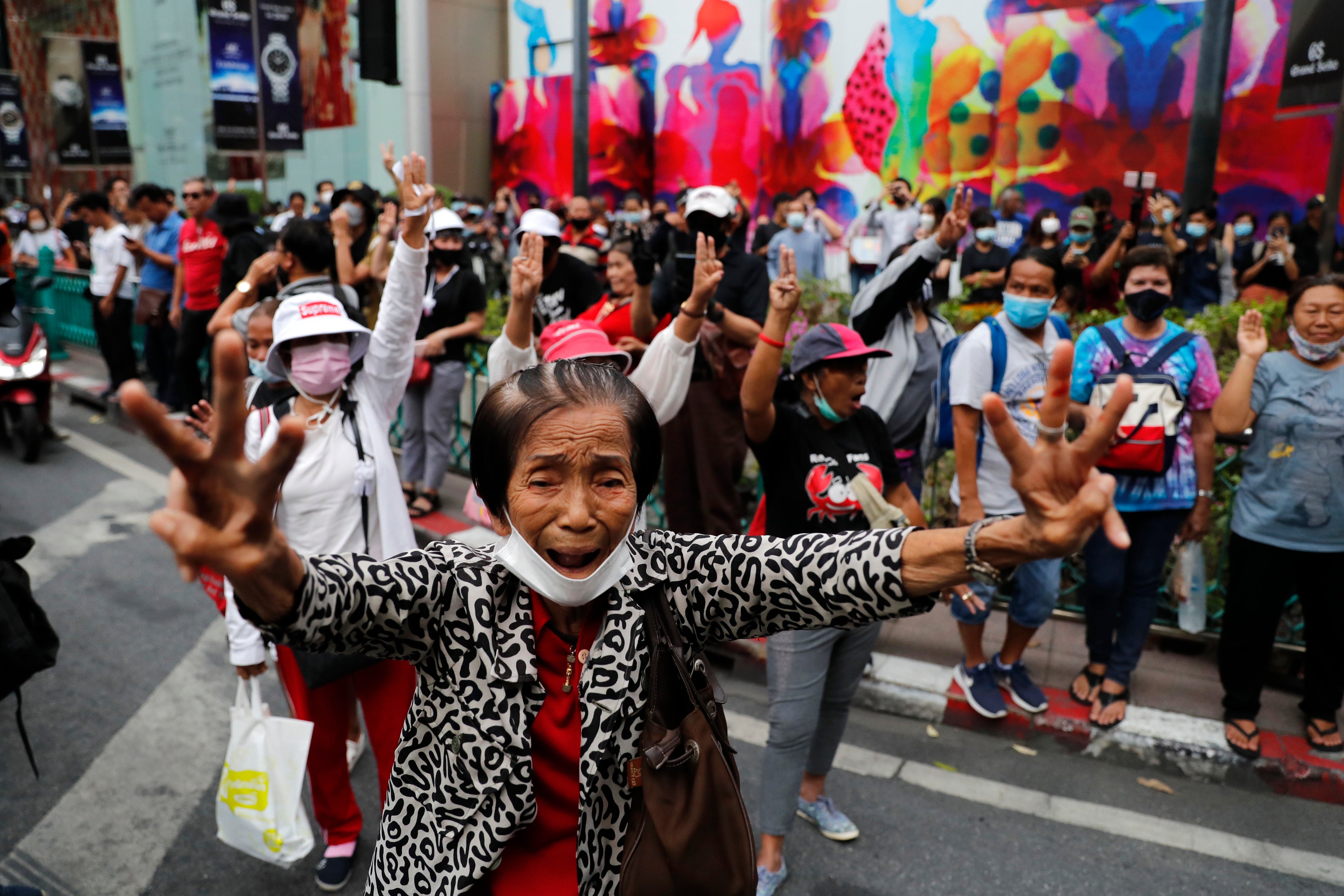Thai protesters rally ahead of parliamentary debate
Pro-democracy protesters in Thailand have gathered again in Bangkok, seeking to keep up pressure on the government a day ahead of a special session of Parliament called to ease political tensions

Your support helps us to tell the story
From reproductive rights to climate change to Big Tech, The Independent is on the ground when the story is developing. Whether it's investigating the financials of Elon Musk's pro-Trump PAC or producing our latest documentary, 'The A Word', which shines a light on the American women fighting for reproductive rights, we know how important it is to parse out the facts from the messaging.
At such a critical moment in US history, we need reporters on the ground. Your donation allows us to keep sending journalists to speak to both sides of the story.
The Independent is trusted by Americans across the entire political spectrum. And unlike many other quality news outlets, we choose not to lock Americans out of our reporting and analysis with paywalls. We believe quality journalism should be available to everyone, paid for by those who can afford it.
Your support makes all the difference.Pro-democracy protesters in Thailand gathered again Sunday in Bangkok, seeking to keep up pressure on the government a day ahead of a special session of Parliament called to try to ease political tensions.
The rally took place at the busy Rajprasong intersection, in the heart of the capital's shopping district, an area that usually draws large weekend crowds. Few protesters turned out in the first hour of the rally, as a better publicized protest had already been called for Monday.
The rallies were called Saturday night after Prime Minister Prayuth Chan-ocha ignored the protesters’ deadline to step down.
The protesters’ core demands also include a more democratic constitution and reforms to the monarchy. Public criticism of the monarchy is unprecedented is a country where the royal institution has been considered sacrosanct.
The protesters charge that Prayuth, who led a coup in 2014 as the army chief, was returned to power unfairly in last year’s general election because laws had been changed to favor a pro-military party. The protesters also say that the constitution, written and enacted under military rule, is undemocratic.
Prayuth’s government last week called the Parliamentary session, expected to last two days, to seek to defuse weeks of almost daily protests.
“The only way to a lasting solution for all sides that is fair for those on the streets as well as for the many millions who choose not to go on the streets is to discuss and resolve these differences through the parliamentary process,” he said last week.
Prayuth also lifted a state of emergency that he had imposed a week earlier that made the protest rallies illegal.
The protesters were not impressed by his efforts to appease them, declaring them insincere.
They noted on social media that the points of discussion submitted by the government for debate dealt not with their concerns but were thinly disguised criticisms of the protests themselves.
They concern the risk of the coronavirus spreading at rallies, the alleged interference with a royal motorcade by a small crowd earlier this month, and illegal gatherings and the destruction of images of the royal family.
Protest organizers have called for a Monday afternoon march to the German Embassy in central Bangkok, far from the Parliament complex on the outskirts of the city.
The apparent rationale for the march is to bring attention to the protesters’ contention that King Maha Vajiralongkorn spends much of his time in Germany.
Protesters’ criticism of the royal institution has irked conservative Thais because it traditionally has been treated as sacrosanct.
Self-proclaimed “defenders of the monarchy” mobilized last week online and in rallies in several cities, in many cases led by local civil servants. On Wednesday, a small royalist rally in Bangkok broke into violence when a few attendees attacked anti-government student activists.